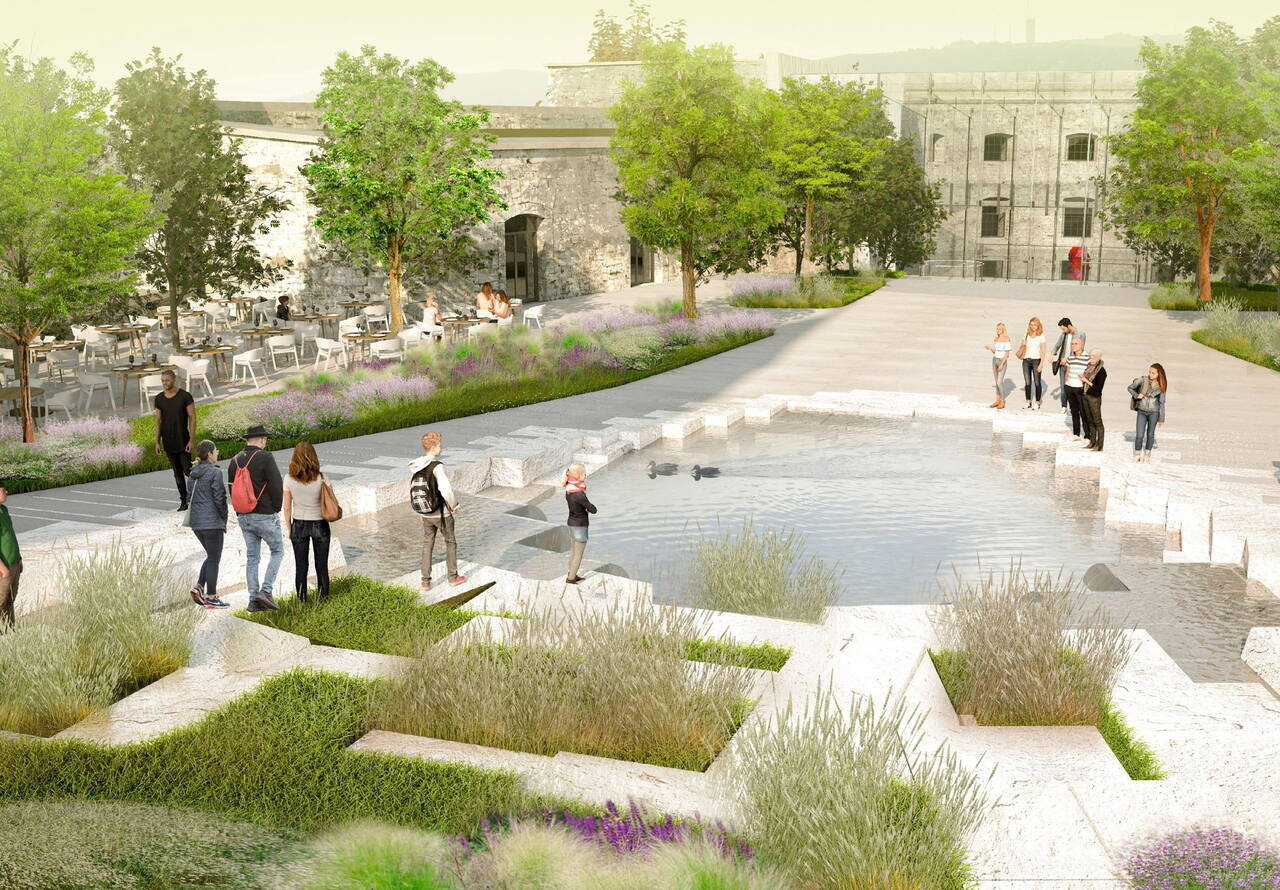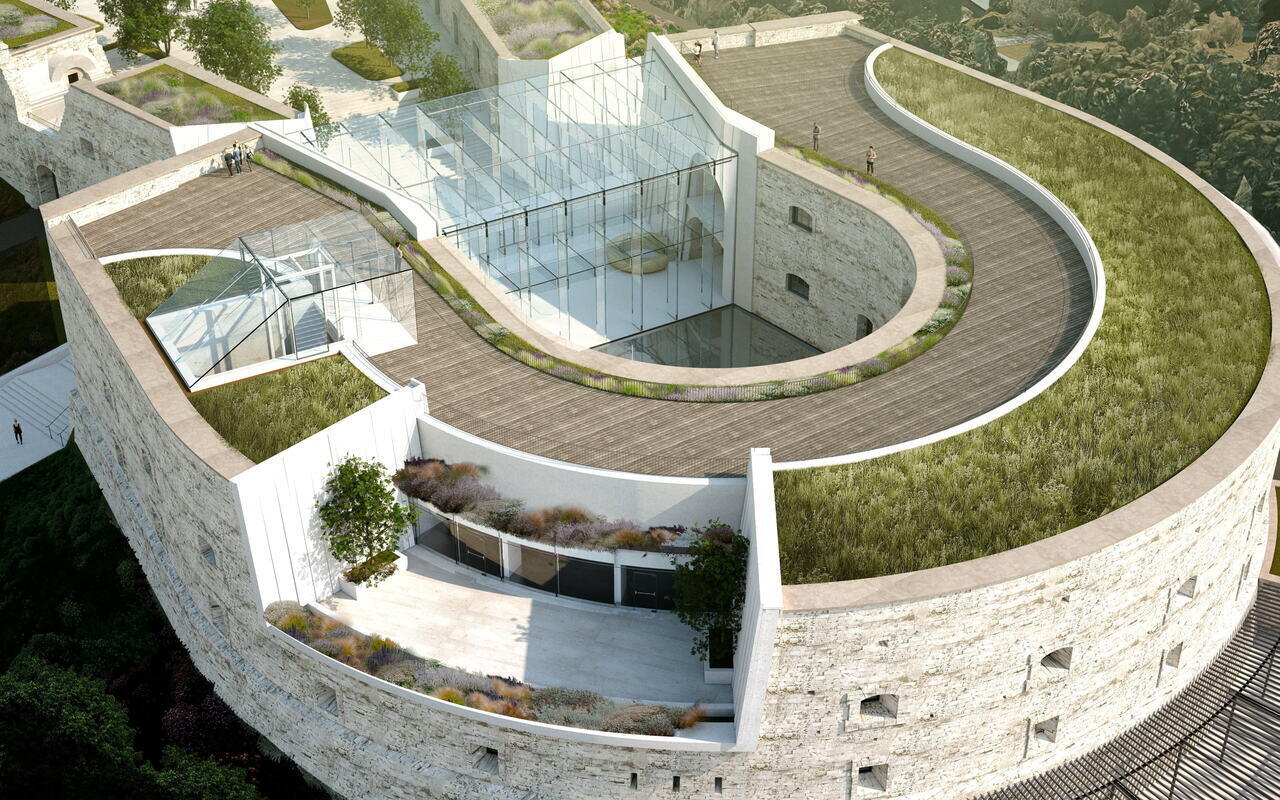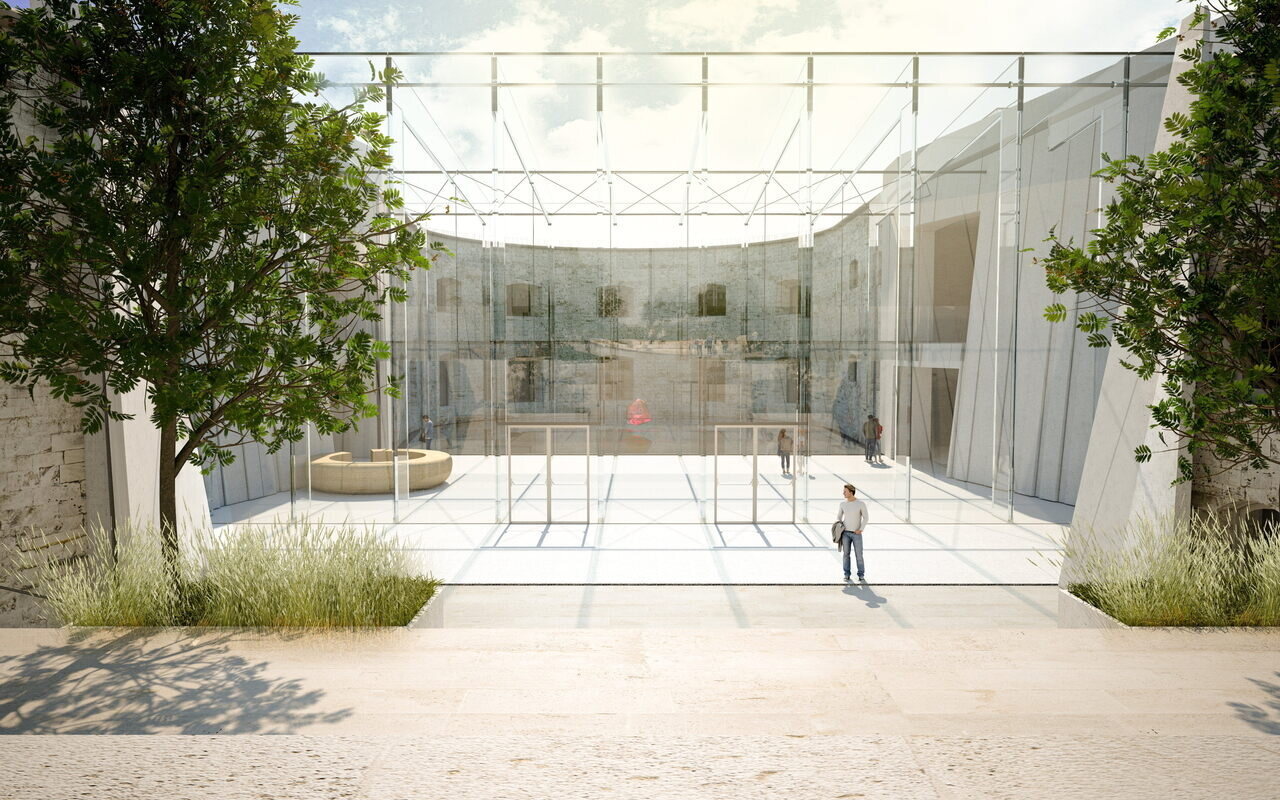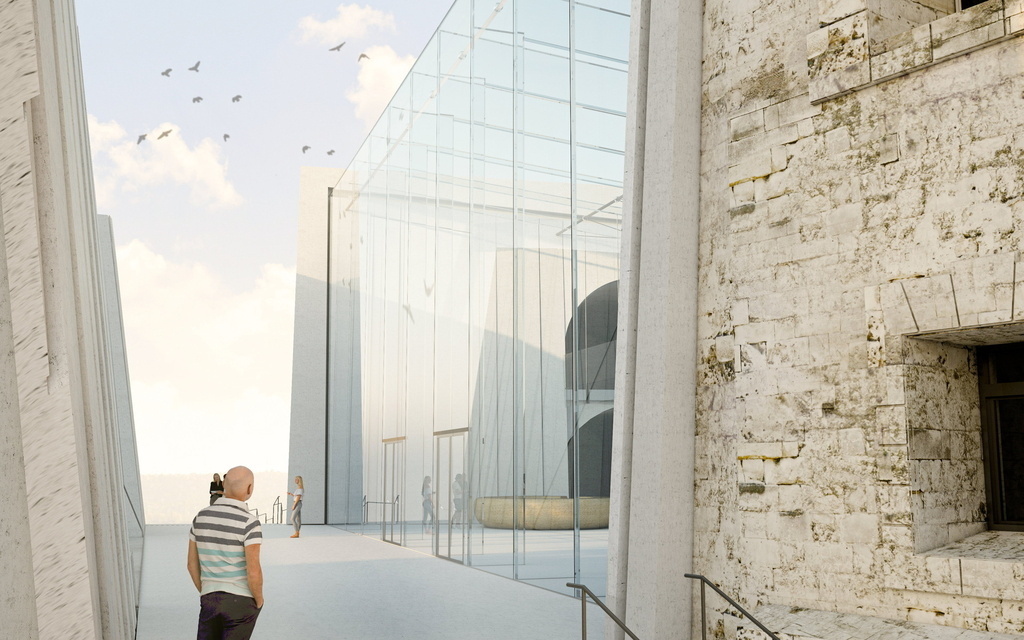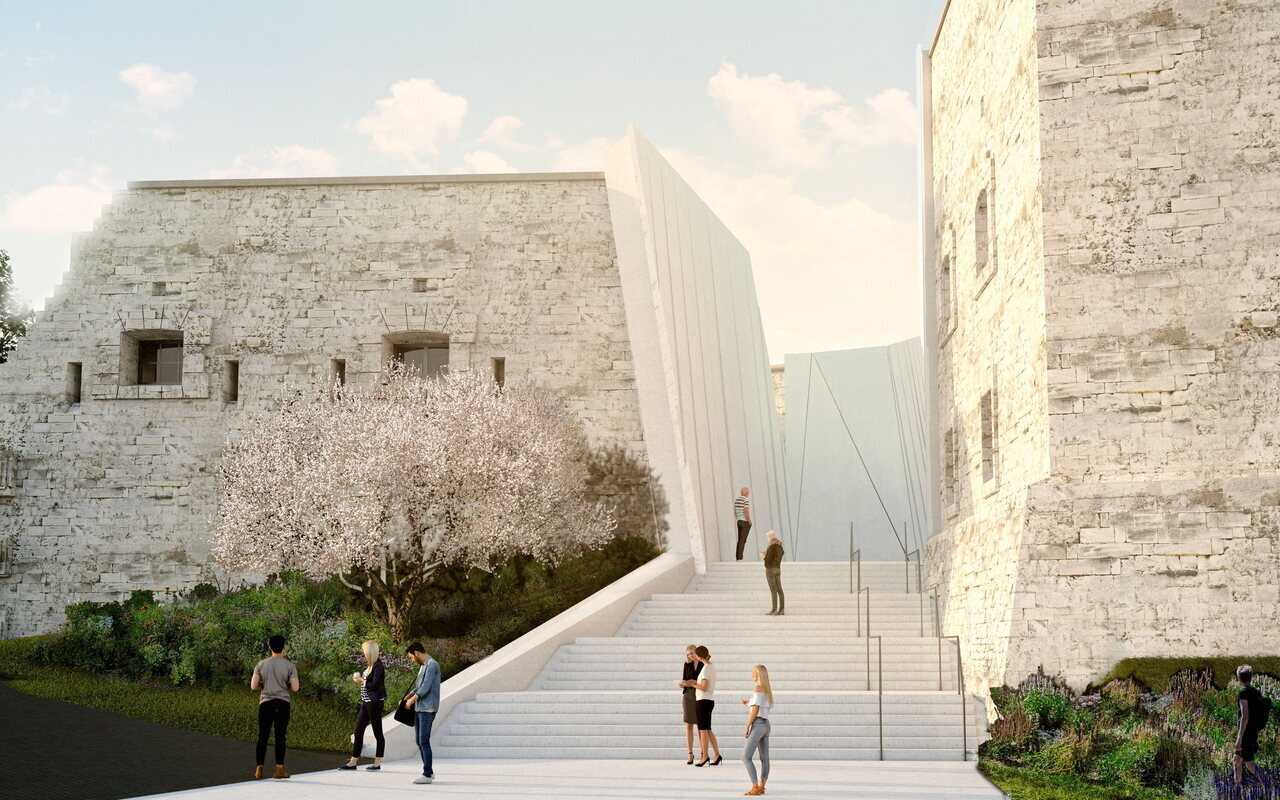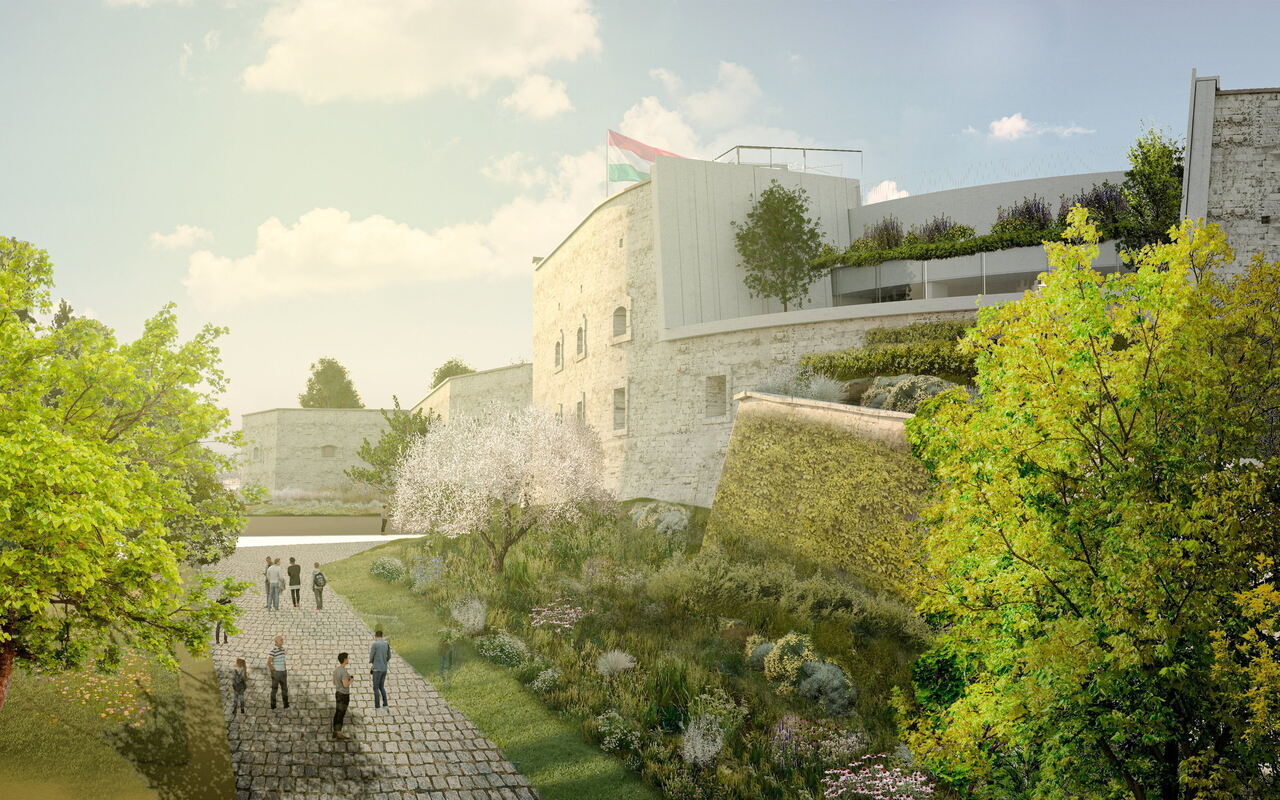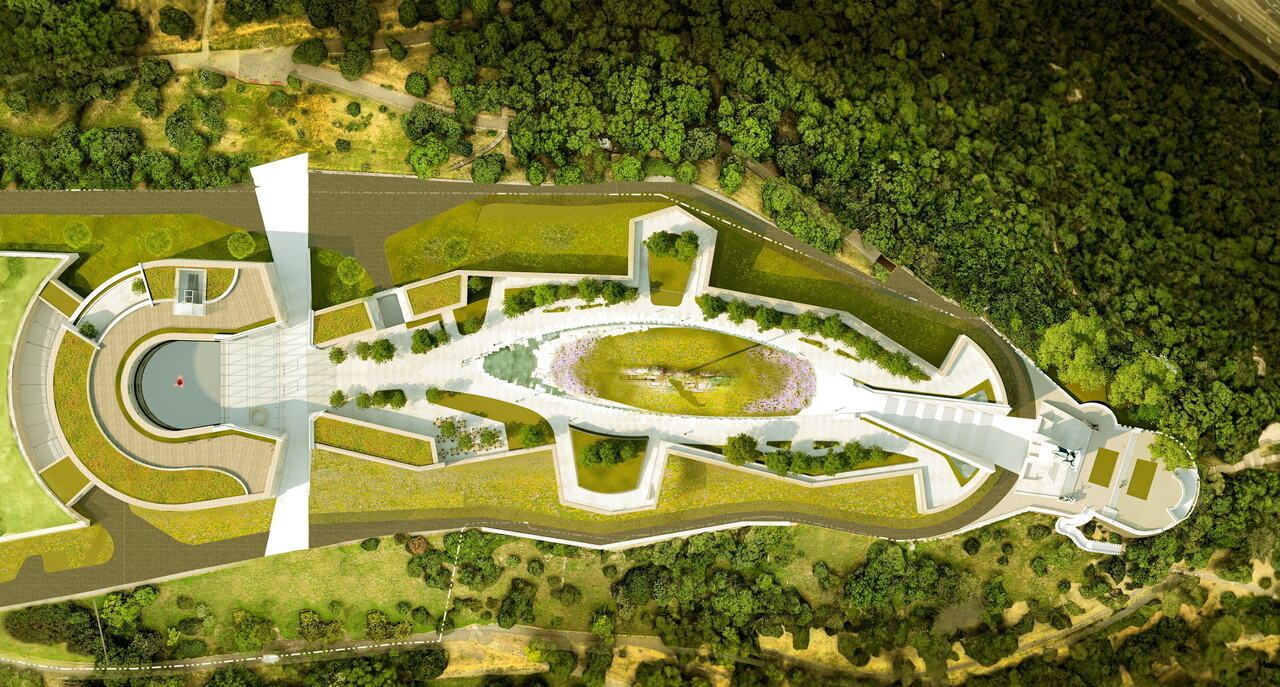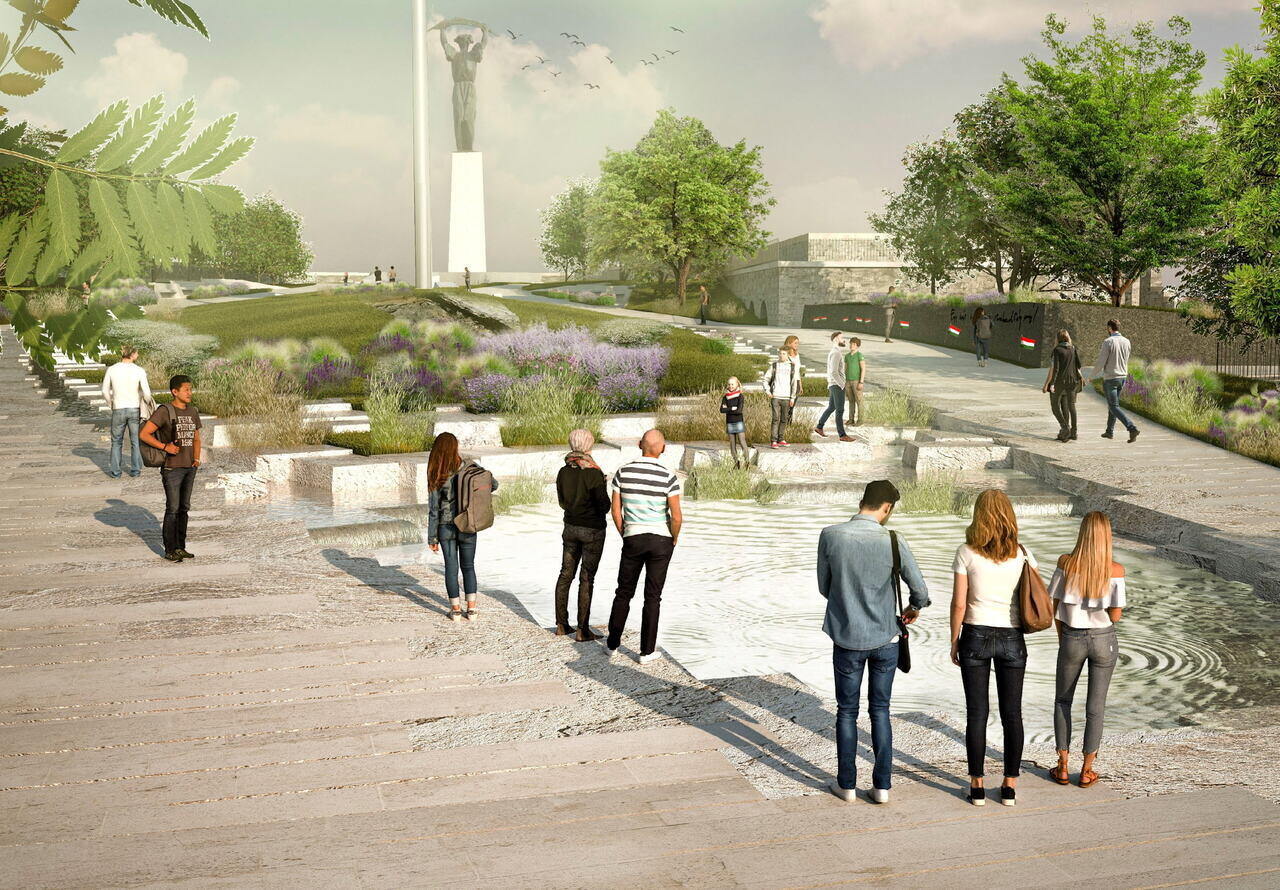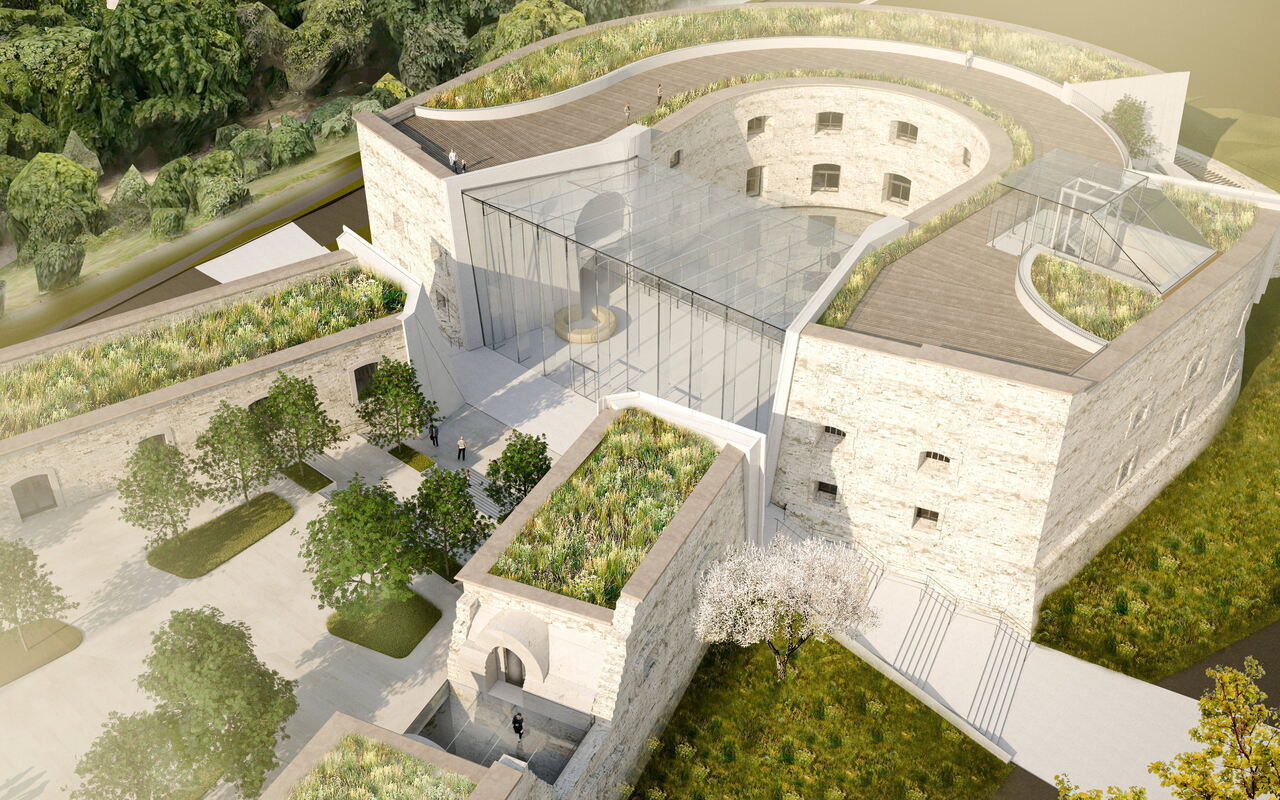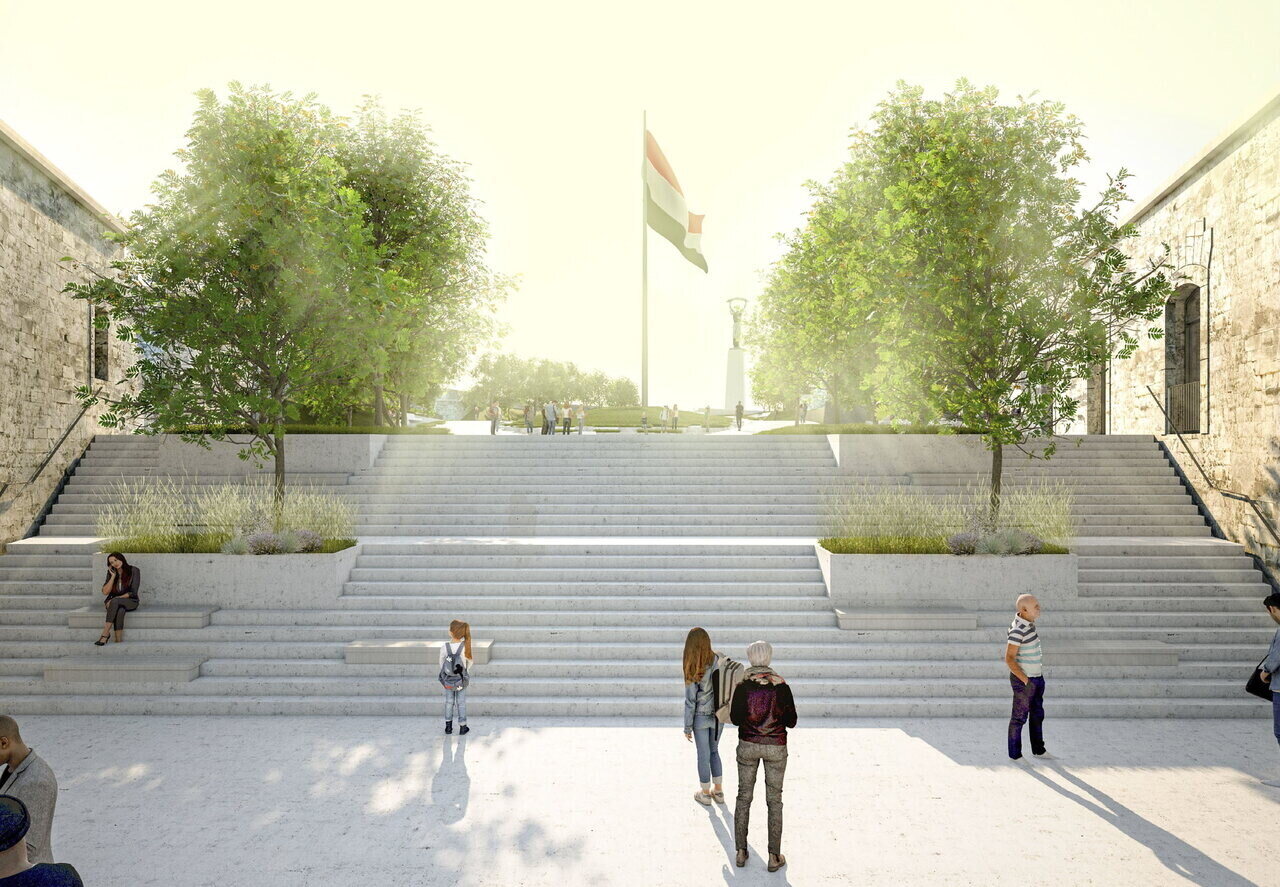Plans for one of the most important tourist destinations in the Hungarian capital have been completed. Some part of the Gellért Hill development aims to realise the renewal of the Citadel as well.
Plans include a garden, a pool, a 35-metre-high flag, a new castle wall, stairs, and a lookout terrace. Telex.hu writes that the interior of the Citadel, which is currently unused, will be converted into a park. Moreover, a museum is also planned to be created within the round bastion.
The theme of the museum will be the struggles of the Hungarian War of Independence.
The plans were prepared by Artist Design Studio and Pakony Táj- és Kertépítész Kft. on behalf of the Hungarian government. The Citadel has been a World Heritage Site since 1987. The iconic building splits Gellért Hill into two, which would be changed by the new plans, as it would open a passage by breaking down the wall between the western rondel (circular bastion) and the bastions.
The southern staircase leads to a vineyard designed at the bottom of the fort. The wall of the eastern rondel would be partially demolished and then a staircase would be installed, through which one will reach the Statue of Liberty. The northern staircase connects the parks of Gellért Hill and the cable car station.
The new plans are hoped to further strengthen the visual connection between the Citadel and Budapest. To enable this vision, new observation decks will be built. From the northern bastion, you will be able to see the Elizabeth Bridge and the Pest side while from the eastern terrace, you will be able to admire the Freedom Bridge. From the southern bastion, you can see Kelenföld, and from the roof terrace of the museum building, you can admire Margaret Island, Buda Castle, and Széna Square.
To the west of the shooting range, you will be able to see the Széchenyi Hill; to the north, the Budavár Palace and the south side of Gellért Hill.
The western rondel will be an exhibition space, while the southern building will be transformed into a restaurant. In addition, the castle walls are being rebuilt. The project includes a huge garden, of which 13,770 square metres are paved and 13,390 square metres make up the green space, as well as a 400-square-metre lake. The public procurement process was won by Lőrinc Mészáros’s company ZÁÉV Zrt. and István Garancsi’s company Market Zrt.
According to the Chief Architect of Budapest, Zoltán Erő, the plan came as a surprise to everyone, but it seems to be a nice development. He also mentioned the importance of maintaining the Citadel as a nature reserve despite the new developments. Moreover, the Citadel has played an important role historically when it served as an air defence base for the Germans and Hungarians during the Soviet siege in 1944-45. The Citadel has seen many things over the years, but by today, it has become the most popular attraction in the capital of Hungary.
